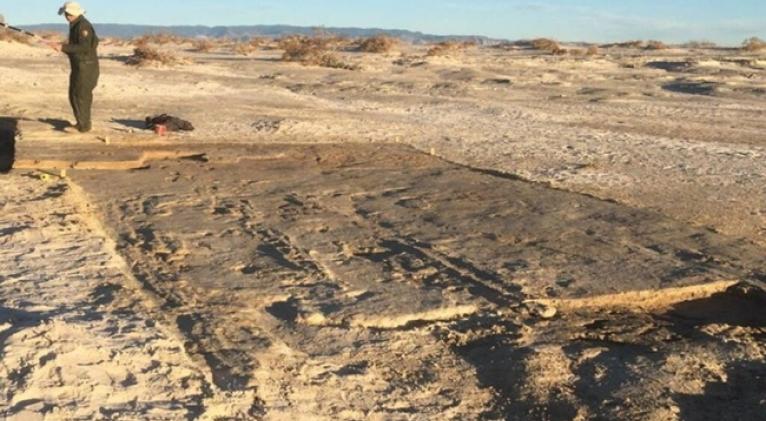
A series of drag marks, probably caused by improvised vehicles made from wooden poles, along with ancient human footprints, have been discovered in White Sands National Park in Mexico, Quaternary Science Advances reports today.
The footprints in the dried mud at White Sands preserve a secret for millennia and not only record the steps of our ancestors but also the marks of their technological ingenuity, the article highlights.
They also reveal how the first settlers of America transported heavy loads 23,000 years ago, says the research team, led by Bournemouth University.
We know that our early ancestors must have used some means of transport to carry their belongings as they migrated around the world, but the evidence in the form of wooden vehicles has rotted away, said Professor Matthew Bennett, leader of the study.
These drag marks give us the first indication of how heavy and bulky loads were moved before the existence of wheeled vehicles, he added.
Some of the footprints found by the team consisted of a single line, probably created by dragging two poles joined at one end, while other footprints consisted of two parallel lines, suggesting they were made of two poles crossed in the middle.
Vehicles made of poles joined in this way are called ‘travois’ and are known to have been used in North American history through stories of indigenous peoples.
The length of the marks discovered in this study varies between two and 50 meters and were preserved in dry mud and buried by sediments.
The fact that they appear next to human footprints suggests that the ‘travois’ were pulled by people, not animals. Many of the footprints around the lanes appear to be those of children, so the team believes groups of children were following them or walking alongside them while the adults pulled them. (Text and Photo: Cubasí)